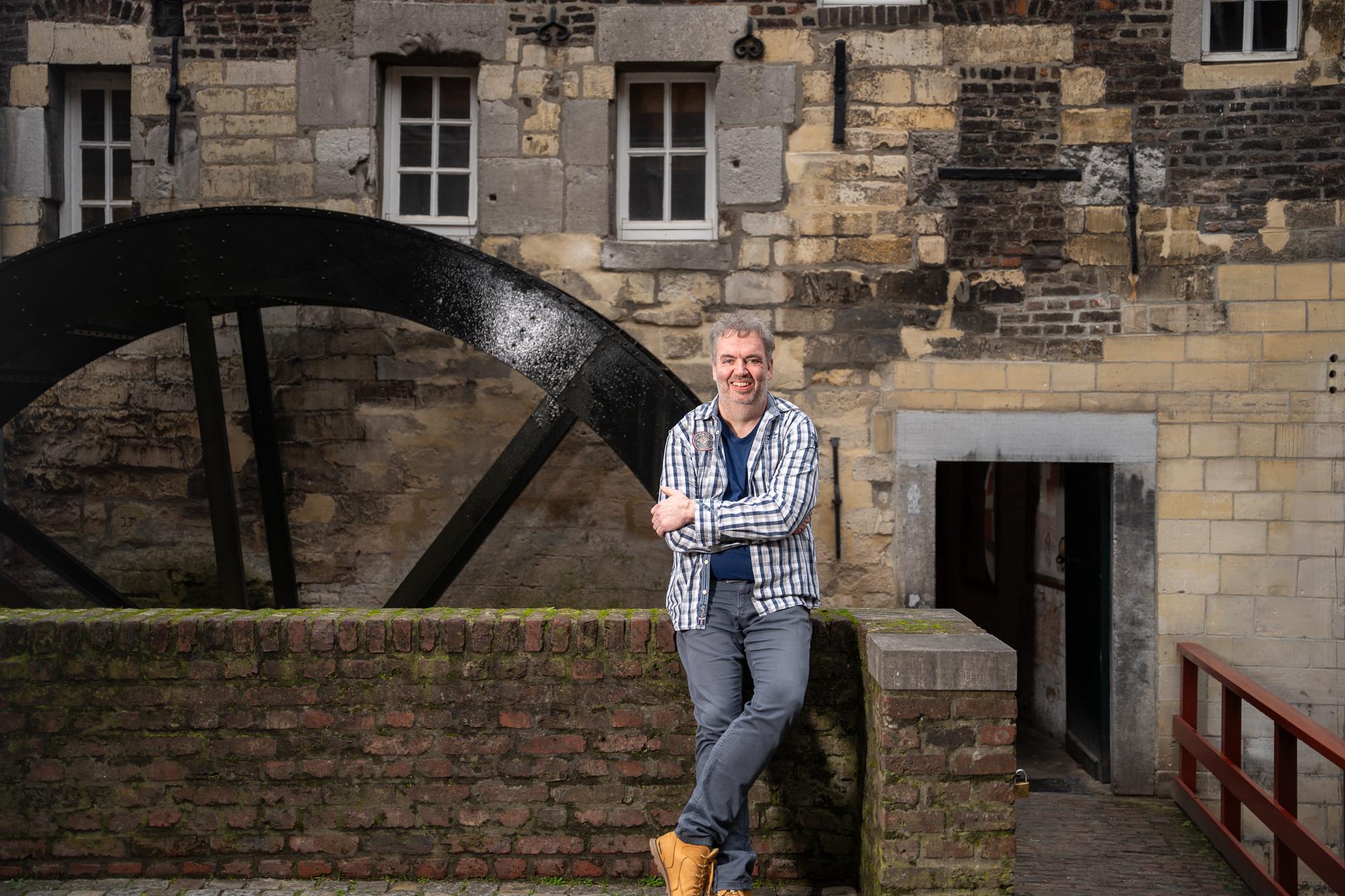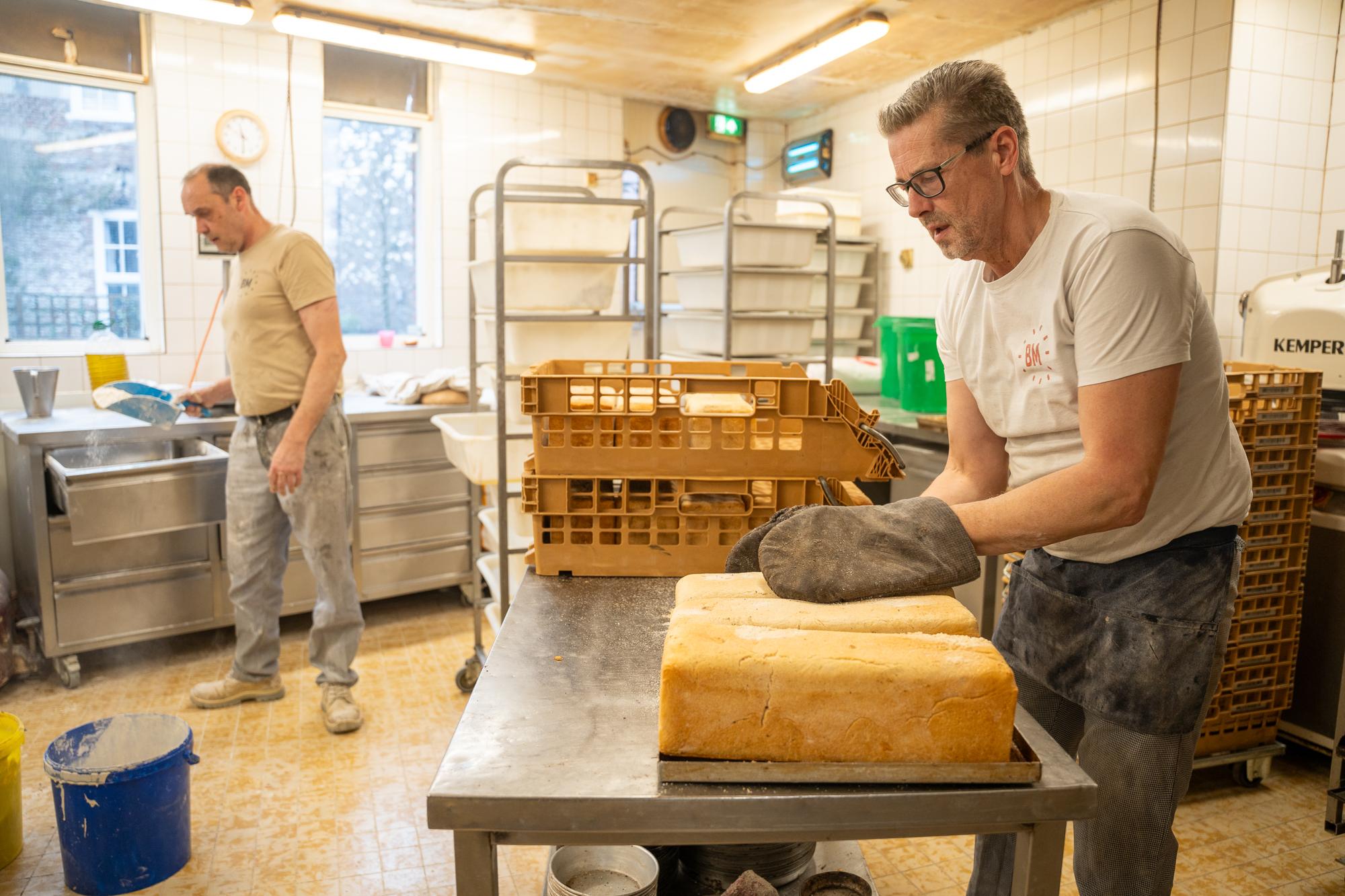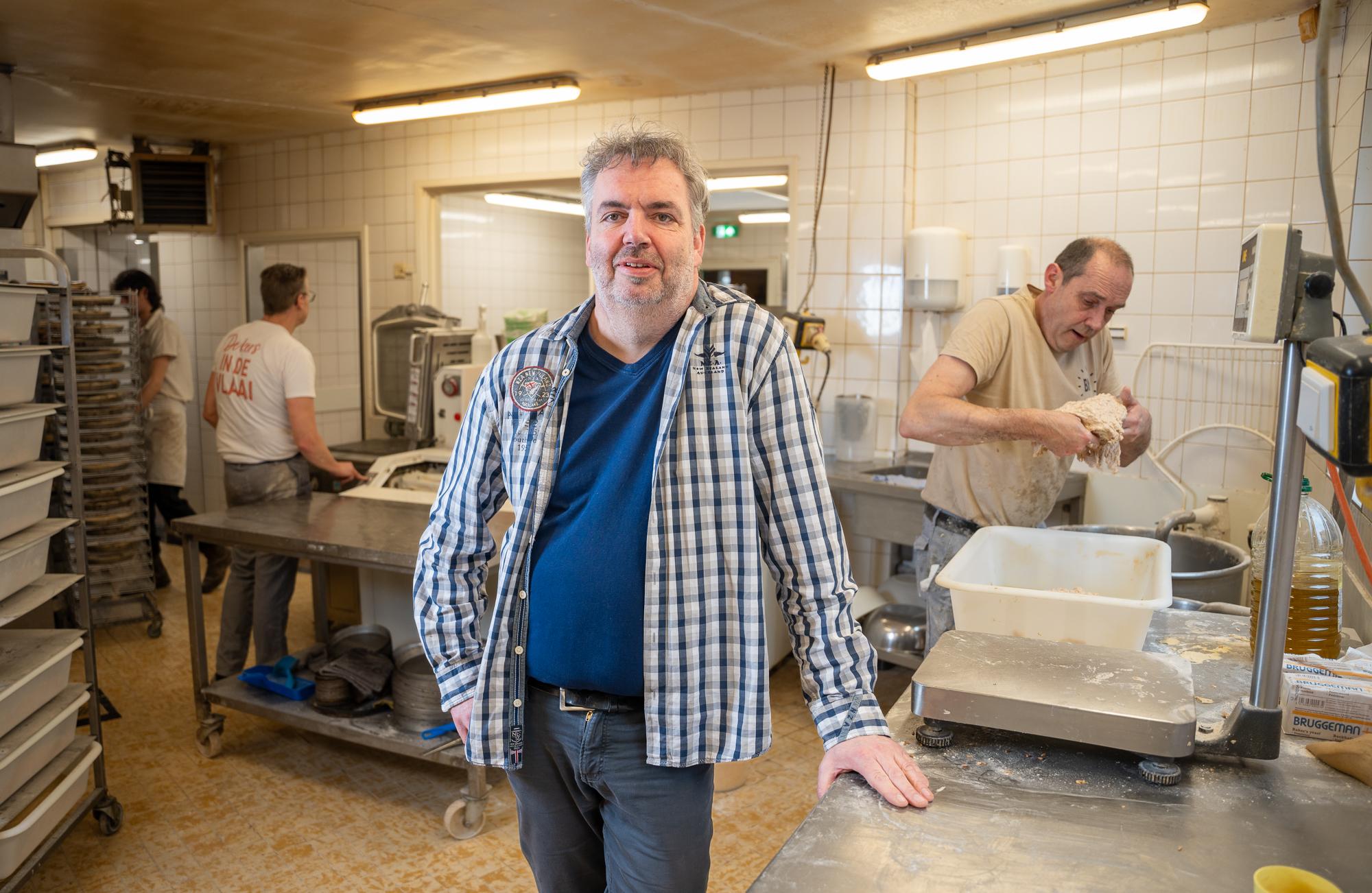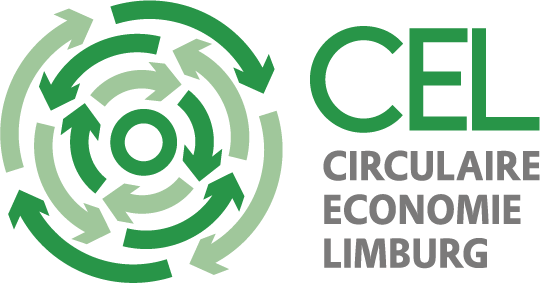With their environmentally conscious outlook and knowledge in the field of food innovation, Frank van Eerd (owner De Bisschopsmolen) and Cindy De Renett (coordinator GrainLabs) continue to push the boundaries. By working together and constantly experimenting, they demonstrate every day that a sustainable food system is not at all unattainable. If you want it badly enough.

Frank van Eerd. Founder, baker, visionary, pioneer. Descended from a family of baker-millers from Brabant, moved to Maastricht and ended up in the 7th-century Bisschopsmolen, the oldest working mill in the Netherlands, by chance.
.'I started with spelt bread as the first baker in the Netherlands,' Frank says. 'Wheat has been developed so far, with only one goal in mind: even more yield. But people no longer look at whether it is still tasty and really healthy. That's why I started looking beyond wheat.'
The protein transition
According to the World Wildlife Fund, legumes and grains are the most important combination in the protein transition (more vegetable and less animal protein). Better for the environment ánd healthier for humans.
'At The Bishop's Mill, we are very aware of the impact of food on our society. To do more with that, we have established GrainLabs, a knowledge center that focuses on the raw materials of our bakery products.'
GrainLabs
'At De Bisschopsmolen, we sell artisan breads and flans. From GrainLabs, we show what we do. We tell the story behind it. Share inspiration and knowledge. Transparency in the chain is paramount. Partly because we talk to the farmers and growers, we know everything about our raw materials and the health aspects of our products.'
All that honest information makes The Bishop's Mill an interesting partner. 'We develop various products for top athletes. So recently we were asked to make breads for this year's Olympic Games in Paris. Just to mention one example.'
"We want to know where the raw material comes from, who the farmer is, how he does it and why he does it. We think that's important and we want to tell."
Fiber-rich brewbread
.'For about 10 years we have been making bread from brewers' grains, a by-product of beer brewing. At the time, everyone declared me crazy," Frank laughs. 'But it used to be done in bread bakeries. And we use those traditional techniques. It's actually circular by nature.
Our bierbostel bread is the most fiber-rich bread we know, and also the most low-carbohydrate bread. In barley and oats there is a substance called "betaglucan. This contains a lot of fiber and works to lower cholesterol. With no additives, we just use pure nature. But who still knows those basics? Most bakers don't anymore!'
Sugar as doping
"The process at a baker and brewer is about the same. If your beer ferments naturally, it tastes much better than beer with yeast and sugar. Brewers use sugars, which is the 'doping'. Because it all has to be fast, of course.
Wheel racers are accused of doping, but hiding sugars in our food is just normal. Just look at bread. There are 40 to 50 substances in it that are unnecessary.'

Flaize is a waste product
.'Recently, Limburg flan was recognized as a European regional product,' Frank says. 'Now flan is a perfect example of a circular product. For example, the fruit that the farmer cannot sell is ideal for making flan filling. And so more and more new things arise.'
Powerbars made from apple peels
.'Within GrainLabs, we have the space to experiment. For example, we have made special power bars (Nutri-Score A) for cyclists from apple waste. Apple peels contain an awful lot of pectin (a soluble dietary fiber). No tricks and gimmicks, but back to the source of the past. Looking at how they did it then and applying that with today's knowledge.'
Protein-rich snacks for hospitals
.'Through collaboration from elite sports, we know what type of protein is important for muscle recovery. The best protein is leucine, which is also found in lupin: a legume that we have grown locally. When lupin is harvested, and grain grows over it, it brings more protein to the grain. From the lupin beans we make flour that we use again in snacks with enriched protein content for hospitals.'

Vegan trend
'From the waste of bread, mushrooms and beer brew you can make vegan bitterballs. Why do we have to call this vegan right away? For example, say it's a vegetable bitterball. Vegan really isn't always sustainable.
We also bake vegan flans here. But if you compare these to our traditional flans, made from natural ingredients from the region, they are still more sustainable than vegan flans," Frank said.
Gun factor
"The most important thing is to share with each other and grant the other person something. That's what most people just don't do. They just take. So much more can be done if you do it together. By talking to other entrepreneurs, you can also learn a tremendous amount. Many businesses are stuck in their own thought patterns. But off the beaten path are often very beautiful opportunities. You might find the solutions there.'
Handwork
'Our biggest challenge right now is in the limitations of the machines. We are ahead of what the machines can do. If we want something in a different way, we have to add substances we don't agree with. So everything is handwork. Fortunately, real craftsmen still work here who love their craft!'
New way of thinking
"There are so many rules you have to deal with as a baker. Just take the many hygiene codes. Maybe that's why so much bread (a cruise ship every year) is thrown away in the Netherlands. Research shows that we produce 4000 kcal of food per day, while we only need 2500 kcal. Then something isn't right, is it? Let's use our common sense and treat the earth better. Let's get back to reality."
"We have to do this, and we have to do that. But the good story, we don't listen to that anymore."
